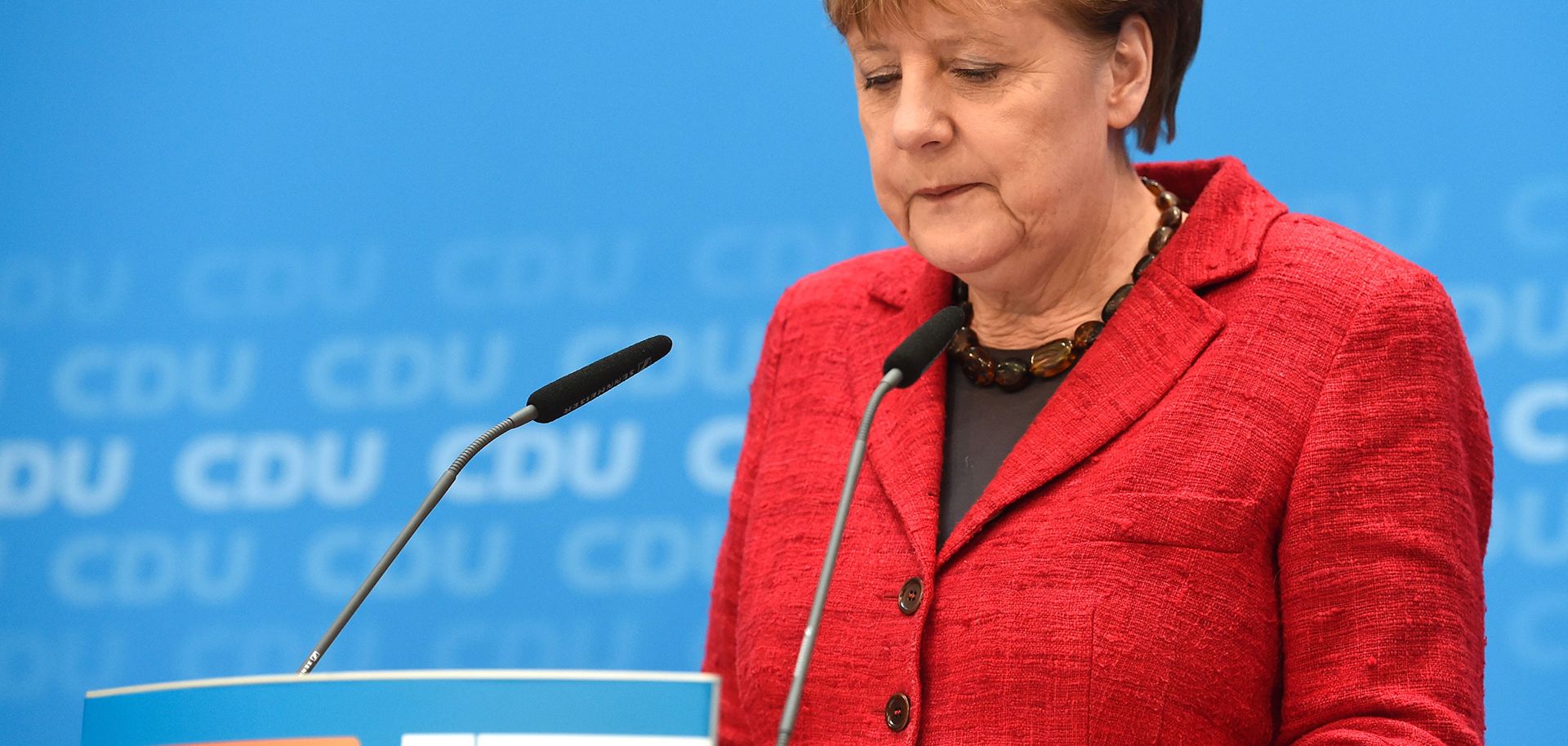ASSESSMENTS
The Refugee Crisis Redefines German Politics
Mar 14, 2016 | 14:46 GMT

German Chancellor Angela Merkel holds a press conference at CDU headquarters in Berlin on March 14.
(ODD ANDERSEN/AFP/Getty Images)
Summary
In Germany's March 13 regional elections, voters revealed their disenchantment with mainstream parties. The elections, held in three of the country's 16 regions, resulted in a record performance by the anti-immigration Alternative for Germany (AfD) party and waning support for most of the traditional political forces. Since taking over the government more than a decade ago, German Chancellor Angela Merkel has not faced a bigger challenge than the refugee crisis. Within six months of its start, the crisis considerably strengthened the anti-immigration opposition, divided the ruling coalition and weakened Berlin's role in the European Union.
Subscribe Now
SubscribeAlready have an account?
